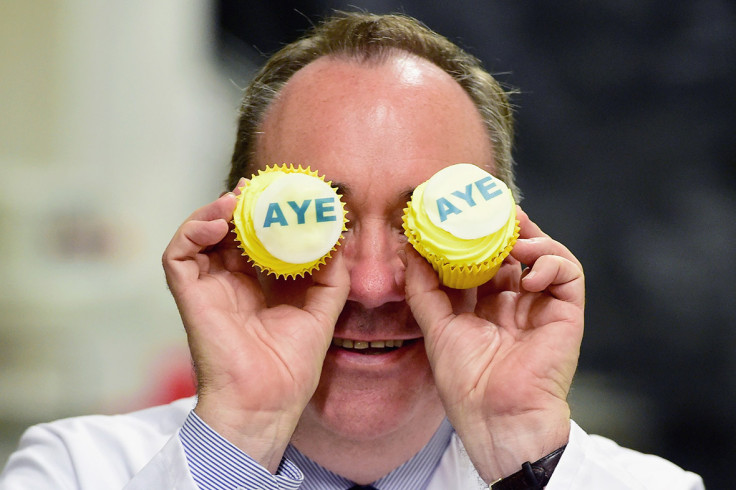Scottish Independence: Nationalist Freakonomics Could Haunt Scotland for Years to Come

As chair of the European Parliament's economic and monetary affairs committee, the last five years of my life have been subsumed into fixing banks, financial markets and the Euro. All of this has been in response to the financial crisis, and the debt burdens that created.
We think we have shored up flaws with Euro monetary union but it has meant Eurozone countries handing over powers for national budgets and banks in a way that is both a massive transfer of sovereignty and the root of a lot of political discontent. And the ECB still can't get its monetary policy to work fully, and hopes that using 'macro-prudential' tools – restricting how money is lent for businesses and mortgages, for example - will help to tailor their interventions to the different Eurozone economies. That is, of course, another tool taken out of the hands of governments.
These are very much the same problems that would need facing in the event of Scottish independence, and how the pound sterling could or might be shared, used or pegged to.
Even with the Bank of England bending over backwards to make monetary policy work in a currency union, Scotland would not achieve true independence. It would be tied to England's bank, which would suffer all the problems faced by the ECB without the ECB's greater independence and new banking union controls.
It seems to me that this scenario, vaunted as the best option by the Nationalists, is neither available nor great. It is unavailable, not just because that is the position of the main UK political parties, but because the rest of the UK would find it unacceptable: making it work would take away sovereignty from them in the very way that has taken UK membership of the Euro off the agenda.
There could be no sterling banking union. It would not be great for Scotland, because there would be no Scottish government control, and like Ireland in the EU, it would have to take what was handed out at the behest of the big country.
Use of the pound without monetary union means there would be no Bank of England bending over backwards. So Scotland would have to make its economic and macro-prudential controls – keeping the reins on spending and lending – much tighter in order to keep investment in Scotland. The downside of this is that it means use of these controls is determined by external events rather than the needs of the internal Scottish economy and political priorities. That is why many smaller countries in the world got cross with some mixed messaging from the US Federal Reserve. Scotland with currency controls would be a very unhappy sight!
Of course Scots can have the English pound in their pockets if they want, but then neither the English pound nor the Scottish economy will be controlled by Scots in a way that gives justice to the term independence. The lack of controls would be worse if there is upheaval and squabbling over taking Scotland's share of UK debt and, as far as I can see, the consequent relocation of vast swathes of the Scottish financial services industry to London. From day one, the credit rating agencies would have Scotland's unmentionables on a string.
A Scottish pound, with a Scottish central bank, is really the only independent and internationally acceptable way. It is certainly the only way into the Euro (and even the EU) if that remains an ambition for Scotland. Pegging to a larger currency or currency basket (sterling, euro, dollar) seems to be what other smaller countries find they need to do. Along with significant reliance on oil revenues and thus the impact of the dollar and oil prices it looks like those bad-boy macro controls would still be getting in the way of social and economic planning.
If Scots want independence no matter the cost: that is their choice and their future.
If Scots want independence because they think they will be better off, or have better control over economic destiny - then I reckon they are deeply mistaken.
Sharon Bowles is a former Liberal Democrat MEP and currently a board member of the London Stock Exchange.
© Copyright IBTimes 2024. All rights reserved.





